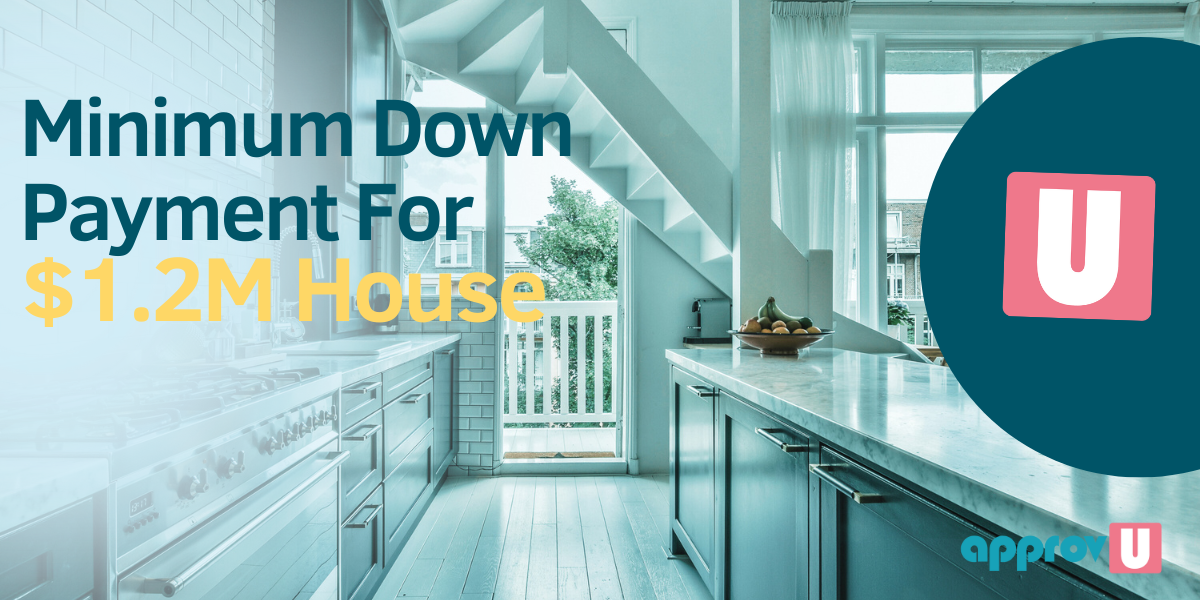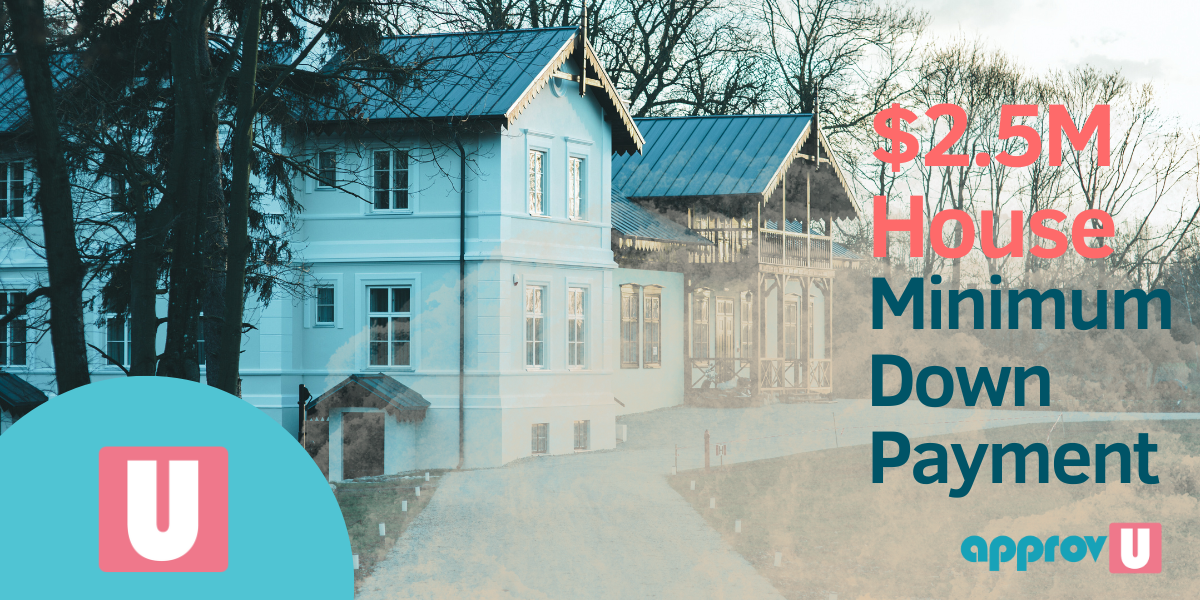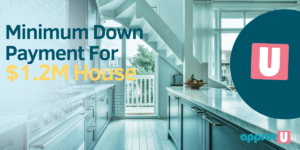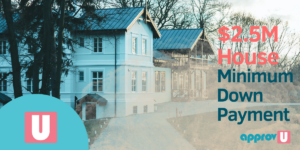Buying a home is one of the most significant investments you’ll make in your lifetime.
There’s much to consider, from choosing the right neighbourhood to ensuring your new property has all the features you dream of.
But one aspect often overlooked by many first-time homebuyers is property taxes.
It’s easy to get wrapped up in the excitement of house hunting and forget about this essential detail.
However, understanding property taxes and how they will impact your overall cost of homeownership is crucial.
Why should you, as a potential homeowner, prioritize gaining knowledge on this topic?
Property taxes can vary widely depending on where you live, the value of your property, and many other factors.
Being uninformed could lead to unexpected costs that strain your budget.
Moreover, property taxes fund essential local services like schools, infrastructure, and emergency services.
By understanding where your money goes, you gain clarity on your expenses and become a more informed community member.
In this guide, we’ll dive deep into the world of property taxes in Canada, breaking down what you need to know to make informed decisions and ensure you’re prepared for the financial responsibilities of homeownership.
Let’s begin this journey to decode property taxes and lead you to successful and informed homeownership.
The Basics of Property Taxes
When you hear the term ‘property taxes,’ what comes to mind?
For many, it’s just another bill to pay, but there’s more to it.
Understanding the basics can empower you to make smarter decisions as you embark on your homeownership journey.
Let’s break it down together.
What are Property Taxes?
Property taxes are compulsory charges you’ll pay to your local municipality.
This isn’t just money vanishing into thin air.
Think of it as contributing to maintaining and enhancing the community you call home.
Every time you admire a well-maintained public park, drive on smooth roads or appreciate the swift response of emergency services, remember your property taxes play a pivotal role in funding these amenities.
How They Contribute to Local Municipalities and Public Services
Your property taxes are hard at work, even if it doesn’t always seem apparent. Here’s a glimpse of where your money typically goes:
- Education: One of the largest slices of the property tax pie often goes towards funding local schools, ensuring children in your community have access to quality education.
- Infrastructure: Roads, bridges, public transit – all these and more are maintained and improved using funds from property taxes.
- Emergency Services: Police, fire, and medical services rely on these funds to operate efficiently and ensure your safety.
- Recreational Facilities: Think about community centers, public pools, and parks. Property taxes help create and maintain these spaces where you and your family can relax and have fun.
- Waste Management: Property taxes ensure your community remains clean and environmentally responsible, from garbage collection to recycling programs.
How Are Property Taxes Calculated?
Navigating the real estate market is complex enough, and when property taxes enter the equation, it can feel even more daunting.
However, with a clear understanding of how these taxes are determined, you’ll be well-equipped to anticipate and manage them.
So, let’s dive into how property taxes in Canada are calculated.
Basic formula: Assessment Value x Tax Rate = Property Tax
At its core, calculating property taxes revolves around this straightforward formula.
However, understanding the components that feed into it is the key.
- Assessment Value: This is the dollar value a municipal property assessor assigns to your property. It’s not always equivalent to the market price of your home; instead, it’s a reflection of what your property is believed to be worth to other properties in the area.
- Tax Rate: Set by your local municipality or council, the tax rate is usually expressed as a percentage. It’s determined based on the budgetary needs of the community. The tax rate might increase if the city needs more funds for projects or services.
Factors Influencing Property Assessment Values
Several elements come into play when your property’s assessment value is determined:
- Recent Sale Prices: If homes in your vicinity sell for high prices, your home’s assessed value might rise.
- Home Improvements: Renovations and upgrades can increase the value of your home. If you’ve recently added a deck or finished your basement, it could be reflected in a higher assessment.
- Economic Factors: The broader economy’s health can influence property values. A booming economy might lead to higher assessments, while a downturn might dampen them.
Understanding Local Tax Rates and How They Can Vary
Every municipality has its own set of needs and priorities.
A city with ambitious infrastructure projects might have a higher tax rate, while a smaller town with fewer public amenities levy a lower rate.
- Budgetary Requirements: Each year, municipalities estimate their budgetary needs for public services. Depending on the anticipated expenses, tax rates may be adjusted.
- Local Real Estate Market: A booming market can lead to higher property values, potentially affecting tax rates if the municipality anticipates more revenue from property taxes.
Difference Between Property Value and Taxable Value
As you delve deeper into homeownership, you’ll come across various terms that might seem interchangeable but have distinct meanings.
Two terms are ‘property value’ and ‘taxable value’.
Understanding the distinction between them is crucial, as it can impact how much you pay in property taxes.
Explanation of Market Value Versus Assessed Value
- Market Value: This is the estimated amount your property would sell for on the open market, based on recent sales of similar properties, its condition, location, and several other factors. When you hear about property values going up or down, it often refers to fluctuations in market value. This figure immediately comes to mind when you think about how much your home is worth.
- Assessed Value: On the other hand, the assessed value is used by municipalities to calculate your property taxes. It’s a valuation set by the local municipality, often a percentage of the market value, and it might not change as rapidly or dramatically as market value. This value considers the overall real estate market, improvements or changes you’ve made to your property, and other local market conditions.
How Changes in Property Value Can Impact Your Taxes
Imagine the real estate market in your area booms and home prices (market values) skyrocket.
You might think, “Great! My home is worth more!”
But remember, as the market value of your home rises, the assessed value might also increase, leading to higher property taxes.
Conversely, property taxes might decrease if the market cools and prices drop, but not always at the same rate or magnitude.
Here are some factors to consider:
- Frequency of Assessments: Municipalities don’t reassess properties every year. If your property’s market value spikes suddenly, your taxes won’t necessarily shoot up right away.
- Caps on Increases: Some areas have limitations on how much the assessed value can increase in a given period, protecting homeowners from sudden, dramatic tax hikes.
- Appeals: If your property’s assessed value doesn’t reflect its true market value or is unfairly high, you might have the option to appeal. Awareness of the distinction between market and assessed values can be beneficial if you ever find yourself in such a situation.
Property Tax Exemptions and Rebates
In the maze of homeownership expenses, you might sometimes feel overwhelmed with the various costs you’re juggling.
However, amidst these costs lies a silver lining: property tax exemptions and rebates.
These financial breaks can significantly affect your annual property tax bill. Let’s dive into these potential savings and see how you might benefit.
Types of Exemptions Available for Homeowners
- Senior Citizens Exemption: Certain municipalities offer reductions in property taxes if you’re a senior. This is a recognition of fixed retirement incomes that might not stretch as far as they once did.
- Disability Exemption: Homeowners with disabilities may also qualify for property tax reductions, ensuring that living independently isn’t prohibitively expensive.
- Veterans Exemption: For those who have served, some areas offer tax breaks as a gesture of gratitude for your service.
- Homestead Exemption: This is a potential break for those who own and reside in their property as their primary residence. It reduces the portion of your home’s value for taxation.
- First-Time Homebuyers: Certain municipalities might offer rebates or reductions for those purchasing their first home, making the step into homeownership a little easier on the wallet.
The Significance of Tax Rebates and Who Can Qualify
Tax rebates are refunds on taxes you’ve already paid. Here’s why they matter:
- Financial Relief: Rebates can provide some financial breathing room, especially if you’ve had large, unexpected expenses in a given year.
- Stimulating Homeownership: For first-time homebuyers, rebates can be an incentive to take the plunge and invest in a property.
To qualify, you must usually fit certain criteria, which can vary widely depending on the municipality and the specific rebate. For instance:
- Income Limitations: Some rebates and exemptions are income-tested, meaning you might only qualify if your income falls below a certain threshold.
- Ownership Duration: There might be requirements around how long you’ve owned and lived in your property.
- Documentation: Always be prepared to provide evidence or documentation, whether in income statements, proof of residency, or disability certificates.
Comparing Property Taxes Across Provinces
As you explore homeownership options, consider properties across various provinces.
Whether you’re considering relocating for work, family, or simply a change of scenery, it’s essential to understand that property tax structures can vary widely from one province to another.
This variation could significantly impact your overall homeownership costs.
Overview of the Average Property Tax Rates in Major Provinces
- British Columbia: Known for its natural beauty, BC’s property tax rates are moderate compared to its high property values. To offset some costs, the province provides specific rebates for homeowners, such as the Home Owner Grant.
- Alberta: Generally, Alberta has competitive property tax rates. Each municipality sets its rates, so cities like Calgary or Edmonton might differ from more rural areas.
- Ontario: With Toronto as its hub, Ontario sees a wide range in property values and, consequently, taxes. The province offers rebates like the Ontario Energy and Property Tax Credit to help residents with their bills.
- Quebec: Quebec has its unique structure for property taxes, and rates might vary significantly between Montreal and more rural areas. It’s crucial to check local rates if you’re considering a move to La Belle province.
- Atlantic Provinces (Nova Scotia, New Brunswick, Newfoundland, and Prince Edward Island): These provinces often have lower property values than national averages. However, the property tax rates might be higher to compensate for smaller populations and the associated revenue streams.
Key Factors That Cause Differences in Tax Rates Between Provinces
- Provincial Funding Models: Each province’s methodology for funding local services and infrastructure. Property tax rates can be set higher or lower depending on the province’s priorities and budget.
- Economic Factors: Provinces with booming economies might see increased property values and tax revenues. This could allow for lower tax rates. Conversely, provinces in economic downturns might rely more heavily on property taxes.
- Population and Density: Urban areas with higher population densities might have higher costs for services and infrastructure but also have a broader base from which to collect taxes. Rural areas, on the other hand, might have fewer residents to share the tax burden, leading to higher rates.
- Services Provided: Consider the services available in each province or municipality. More extensive public transit systems, better-maintained parks, and other amenities can increase taxes.
Preparing for Property Tax Payments: Budgeting and Saving Tips
Stepping into homeownership is a significant financial commitment, and your property tax bill is one of those recurring costs you’ll need to anticipate.
Preparation is your best ally to avoid the sting of a hefty bill or scrambling for funds at the last minute.
Let’s explore how to budget for and manage your property tax payments effectively.
Understanding the Payment Frequency and Methods
- Annual Payments: Some municipalities might require an annual lump sum payment. If this is the case for you, setting aside a portion of your monthly budget to cover this cost is crucial.
- Monthly or Quarterly Installments: Many municipalities offer more frequent, smaller payments to ease the burden. This can be a more manageable way to budget and ensure funds are always available.
- Direct Debit: Consider setting up a direct debit from your account, ensuring you never miss a payment. It’s an easy way to automate the process and avoid potential late fees.
Strategies to Budget for Your Property Taxes
- Escrow Accounts: They can be a lifesaver if you’re unfamiliar with them. When you make your mortgage payment, a portion is placed into an escrow account specifically for property taxes (and sometimes insurance). The funds are automatically taken from this account when the bill is due.
- Dedicated Savings Account: Consider opening a separate savings account for property taxes. Transferring a set amount into this account each month will ensure the funds are available when needed, and you’re not tempted to use them for other expenses.
- Review and Adjust: Property tax amounts can change, so your budget must be reviewed annually. If your property taxes go up, adjust your monthly savings accordingly to avoid shortfalls.
- Take Advantage of Rebates and Discounts: Look for any available rebates, discounts, or exemptions, as discussed in the previous section. These can provide some relief to your overall tax burden.
- Stay Informed: Property tax rates and assessment values can change. Staying informed about these changes will allow you to adjust your budget accordingly.
Tackling Unexpected Increases
It’s not uncommon for property taxes to rise, sometimes unexpectedly. If this happens:
- Appeal: If you believe the assessed value of your property is inaccurate, consider appealing the assessment. This might reduce your tax bill.
- Cutting Costs: In the short term, look for areas where you can trim expenses to accommodate the increased tax.
- Seek Financial Counseling: If you struggle to manage the added costs, consider consulting with a financial advisor. They can offer strategies and insights to help you navigate the situation.
The Long-Term Impact of Property Taxes on Real Estate Investments
As you venture into the world of real estate, whether as a homeowner or an investor, understanding the long-term impact of property taxes is paramount.
These taxes don’t just affect your immediate financial situation; they play a role in a property’s broader value and appeal over time.
Here’s a deeper dive into how property taxes can shape your real estate investments in the long run.
Property Taxes and Property Value
- Appreciation Rate: While numerous factors affect a property’s appreciation, areas with high property taxes might see slower appreciation rates. Potential buyers, wary of the ongoing tax burden, might be less willing to invest, suppressing demand.
- Desirability and Demand: High property taxes can reduce the appeal of an otherwise attractive neighbourhood. When scouting for investment properties, always factor in the local tax burden alongside other considerations like schools, amenities, and transportation.
Impact on Rental Income and ROI
- Passing Costs to Tenants: As a landlord, consider passing on some or all of the property tax burden to your tenants through rent. However, be cautious. High rents driven by property taxes could reduce your property’s appeal to potential renters.
- Evaluating ROI: Property taxes can affect your return on investment (ROI). When calculating potential ROI on a property, always factor in property taxes as an ongoing expense, not just a one-off cost.
Liquidity Concerns and Sale Timing
- Resale Implications: When it’s time to sell, a high property tax can deter potential buyers, especially if comparable properties in nearby lower-tax areas are available.
- Timing the Market: Selling a property before a known tax hike or after a tax reduction might be advantageous. Staying attuned to local tax trends can guide your sales decisions.
Tax Liens and Investment Risk
- The Threat of Tax Liens: Falling behind on property taxes can result in a tax lien on your property. This lien can complicate or even prevent the sale of the property until it’s settled.
- Investment Risk: If you’re considering investing in properties with tax liens, be aware of the risks. While these properties might be available at reduced prices, settling the liens and navigating the associated bureaucracy can be challenging.
Planning and Strategy Adjustments
- Diversification: As with any investment, diversifying your real estate portfolio across different tax jurisdictions can mitigate risks associated with property tax fluctuations.
- Tax Forecasting: Stay informed about potential tax changes in areas where you have property investments. This foresight allows you to proactively adjust your strategy, whether selling a property, adjusting rents, or seeking tax relief options.
Key Takeaways and Next Steps
In the realm of Canadian real estate, understanding property taxes is paramount.
These levies, determined by property value, are vital in funding essential municipal services.
With varying rates across municipalities and provinces, thorough research is necessary, especially for prospective buyers.
The landscape of property taxes also offers potential avenues for reductions through various rebates and exemptions.
As you venture into homeownership or real estate investment, being well-informed and proactive about property taxes is not just a recommendation but a necessity.
With the right knowledge and resources, you can navigate this critical aspect of property ownership confidently and make informed decisions.
Frequently Asked Questions (FAQs) about Property Taxes in Canada
Venturing into property ownership, you’re bound to have questions—especially regarding the complex realm of property taxes.
Here, we address some of the most commonly posed queries to equip you with essential insights further.
How is the assessed value of my property determined?
The local assessment authority determines your property’s assessed value, often using a combination of market trends, sales data, property size, age, location, and improvements. Remember, this value may not always match the current market value of your property.
Can I challenge or appeal my property’s assessed value?
Absolutely. If you believe your property’s assessed value doesn’t accurately reflect its worth, you typically have time to file an appeal. Each municipality or province will have its process, so check local regulations.
What happens if I don’t pay my property taxes on time?
Late payment can result in penalties, interest, or even a tax lien on your property. It’s crucial to address any outstanding balances promptly to avoid additional fees or complications.
Are there any circumstances where I might be exempt from property taxes?
While property tax is generally mandatory, some exemptions might apply, such as specific rebates for seniors, veterans, or disabled individuals. Each province and municipality will have its own set of exemptions, so it’s essential to research local guidelines.
Can I deduct property taxes from my income taxes?
Property taxes on a primary residence are not deductible from your income tax in Canada. However, the property tax can be deducted as a business expense against rental income if you own rental properties.
How can I determine a specific area’s property tax rate?
Most municipalities will have this information available on their official website. If not, contacting the local city or town hall is another reliable method to obtain this information.
Do property taxes cover utilities like water and electricity?
Generally, no. Property taxes typically fund services like road maintenance, public schools, and emergency services. Utilities are usually billed separately, though some municipalities might include specific utilities, like water, in the property tax bill.
















